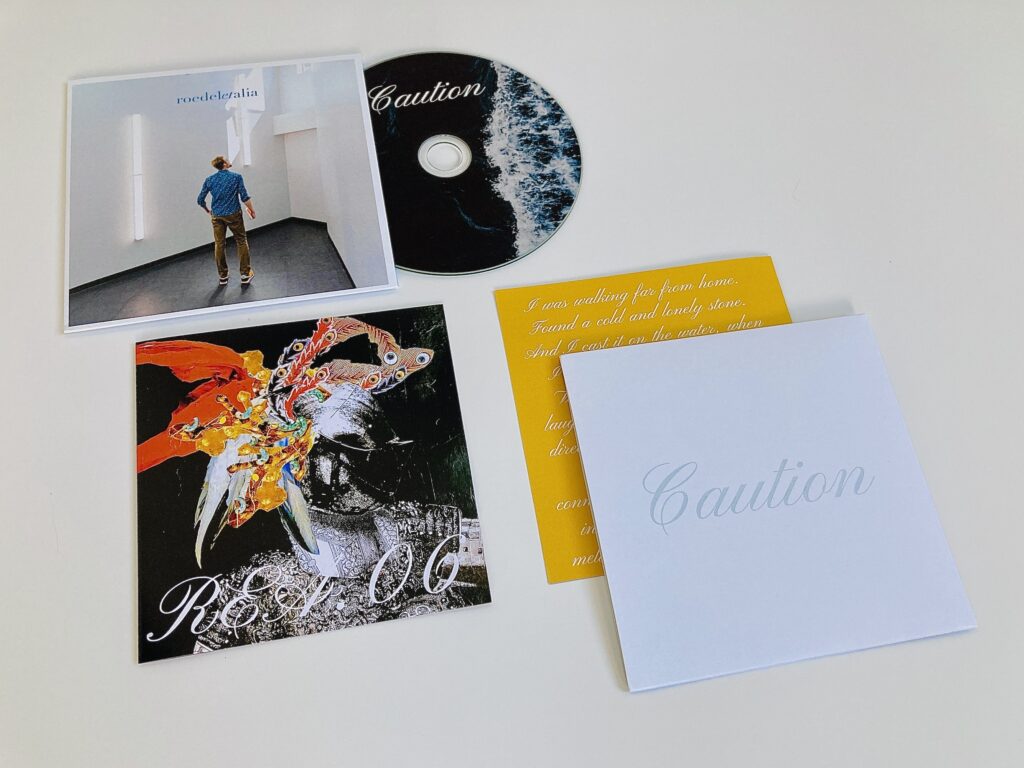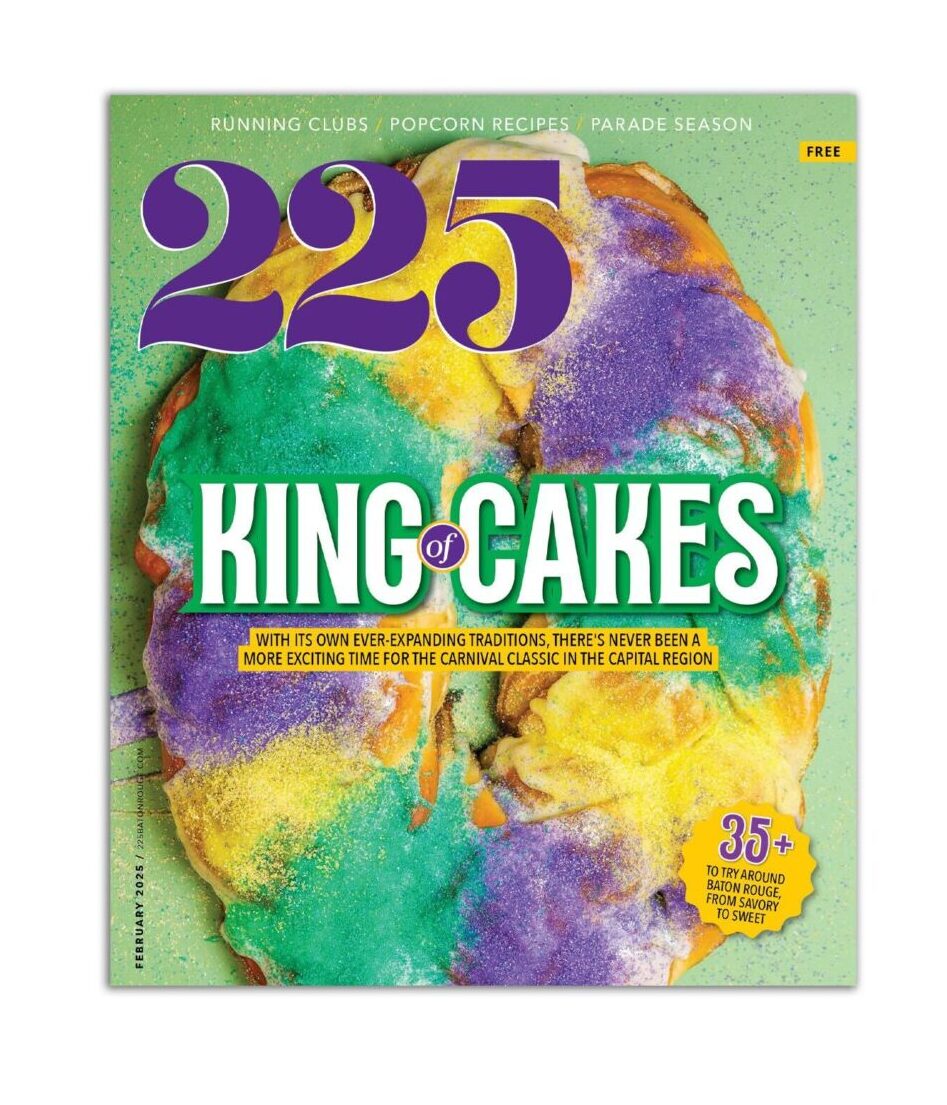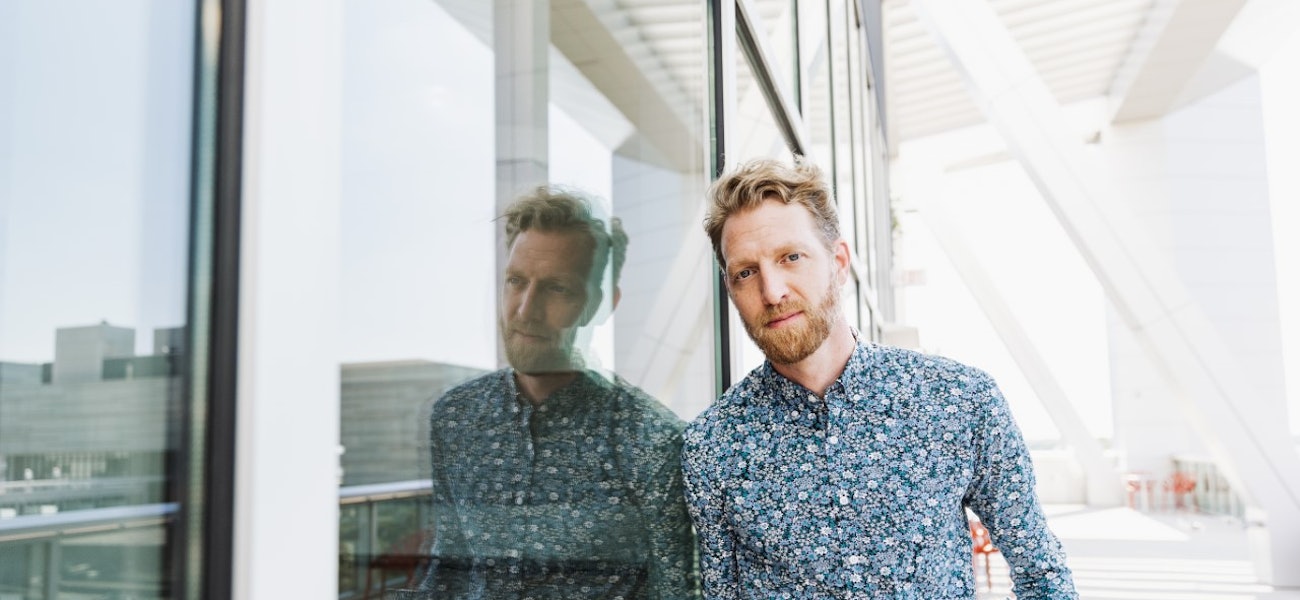Correction: This article has been updated to correct the spelling of Brian Danos’ name and Villa Veda project. 225 regrets the error.
In early October, Jeffrey Roedel released his third hybrid album of poetry and music, titled Caution. The tracks therein comprise Roedel’s poetic words laid over—and occasionally droning eerily behind—the musical stylings of multiple collaborators, many of them stalwart members of the Baton Rouge arts and music scene: Cohen Hartman, Benjamin Herrington of Minos the Saint, Norbert Redmond of Kinky Vanilla, Emily Sholes Smith of Dela Memoria (Mississippi), New Orleans-based singer Thea Lissi, and Chicago-based (but BR native) musician and comedian Matthew Sigur.
Musically, the project is a mixed bag, ranging from crunching blues riffs to ambient soundscapes. But lyrically, Roedel says he kept the focus sharp: Introspective, meditative, and poignant.
225 sat down with Roedel (who is also the magazine’s former editor, as well as a longtime contributor) to take an inside look at Caution and his unique poetic/musical oeuvre.
|
|
|
How did you first get into writing poetry?
The poetry is a completely different type of writing or expression than I had done before. I really hadn’t done much poetry growing up or in my twenties or anything. I really started doing that during the pandemic.
Getting creative to keep things interesting during isolation?
Yeah, I think that was part of it: a little bit more quiet time at home, and so much going on in the world and in news and on social media. I think maybe poetry was kind of my way of processing some of that. It just felt kind of necessary–and also it was a lot of fun too. But it just felt necessary to comment on world things in the first batches of poetry that I started writing. And that’s kind of what makes this one different.
Different how?
I feel like the first album Distance was more speaking out and processing what’s going on in the world, and Caution is kind of the opposite of that: It’s more speaking inward and talking to myself and thinking about what’s going on inside of me, which is kind of a scary thing, but it just shifted that direction over the past year.
Let’s get into the details on some of these tracks.
The first track (“Abundance of Caution”) is definitely one I hope everybody hears. I think the idea of self-awareness of when you’re in a comfort zone, and whether that’s actually good for you or not, that’s just something that I was working through writing that. “Everything but the Television” is probably the darkest thing I’ve ever written. It’s me talking about myself struggling with some feelings of isolation and just some stressful troubled nights that I think everyone can relate to at one point or another. I think “Love in All Directions” might be one of the better short poems that I’ve written. That was about me just throwing a rock in a pond and seeing the ripples go across the reflection of my face, and I just like how the words came out on that one. “Feel” is like the other side of the coin of “Abundance of Caution.” It’s a slower piece, so it feels a little more intimate, but it’s kind of treading similar ground, so those are kind of bookends to the album. And then “Good Service on Spain Street,” that’s really a true story about standing outside of a friend’s funeral. That was a therapeutic expression. Writing that poem, I didn’t know how it would end, but it actually ended in a way that was something I needed to hear. Finishing that poem was helpful to me, so maybe it’ll be helpful to someone else.

Can you talk about the decision to record an album rather than release a collection of written poetry?
Well number one, I absolutely love to collaborate. I think when I realized that I was writing a lot of poetry, I wanted to share it, but I didn’t want to go the traditional route. I thought it would be more rewarding for me and also help share the work in a better way and wider way by collaborating with some really talented musicians. And I think it’s just kind of interesting to approach poetry as experimental music or rock music— that just makes it fun for me. And I don’t really see a lot of people doing that, so that made it exciting too. I just kind of felt like there were no rules whatsoever.
Can you tell me about the process of recording the album?
It was really recorded in pieces. I record all my vocals here in Baton Rouge. We recorded some stuff at Earthship Records (or Legendary Noise Floor). So it really is kind of pieced together in that sense. I’ve also gotten really into sound mixing. I’ve done a little bit of that for film and worked with editors on that and learned a lot from them. So I’ve done a lot of sound mixing on this. And then Brian Danos, who has a project called Vela Vada, did some of the final mixing and did all the mastering, so he kind of put the magic fairy dust on it at the very end.
|
|
|
Did you set out to write all these poems for the album, or did you write and later select what would appear on the album?
I had the track “Abundance of Caution” for about a year, and I was just going to put it out on its own. But what’s funny is that I was just listening to it to fine tune the music, so I’m listening to it dozens or hundreds of times, and in the process I ended up writing other things to kind of branch off of that. So for the most part, it started with that track, and other things kind of flowed out of it.
Now that you’ve released three albums of recorded poetry, do you think you’ll explore some different channels to share your work?
Definitely. I absolutely want to put together a poetry book. It would probably collect everything that I’ve recorded and some poems that haven’t been recorded and some newer stuff too. At some point, probably next year, I’ll start looking at that and figuring out how best to do that. I do have plans for at least one more audio collection, but after that, I would love to put together a book.





